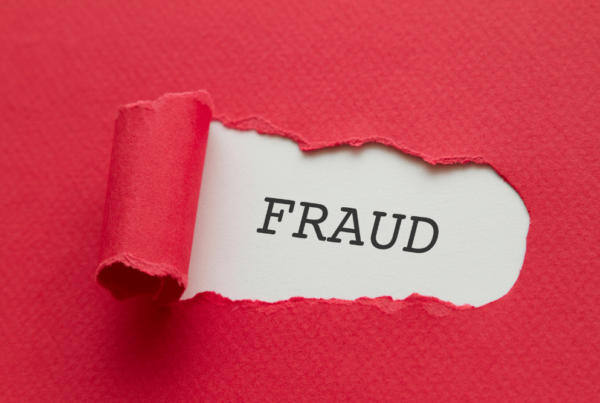FEDERAL CRIMES
Possession of Controlled Substance Attorneys
21 U.S.C. § 841
21 U.S.C. § 841 – What You Need to Know About Controlled Substance Offenses & Drug Crimes.
The Controlled Substances Act (CSA) and the Controlled Substances Import and Export Act (CSIEA) are two of the legislative tools used by the federal government to crack down on illegal drug use and distribution. The Drug Enforcement Agency (DEA) is the federal agency that leads this charge. In coordination with state, local and even international authorities, the DEA investigates alleged offenders accused of drug crimes ranging from retail level drug activity, to the highest-level drug trafficking, both domestically and internationally. Over the last three fiscal years, there have been an average of roughly 19,000 offenses each year across the U.S. for drug trafficking alone, according to the U.S. Sentencing Commission. Over that same period, Illinois has claimed nearly 30% of these each year.
What is a Controlled Substance?
A wide variety of substances are considered controlled substances under CSA. 21 U.S.C. § 812 establishes five lists of controlled substances called schedules. They group substances based on whether they have a legitimate use in medical treatment, their potential for abuse, and the likelihood of their abuse leading to dependence. The schedules are listed in order from most to least dangerous. For example, Schedule I includes substances with no legitimate medical use and the greatest potential for abuse. These include Ecstasy, heroin, marijuana and others. Schedule V substances, by comparison, include those with the lowest likelihood of abuse, and those with relatively small amounts of narcotics, such as cough syrups with codeine.
What Type of Conduct is Prohibited?
21 U.S.C. § 841 targets a core group of broadly defined drug offenses, which include manufacture, distribution, and possession with intent to distribute.
- 841(a)(1) criminalizes the distribution of a controlled substance and possession with the intent to distribute. For a conviction under this section, the Government must prove that the defendant knowingly distributed a controlled substance and knew that it was a controlled substance. For possession with intent, the Government must prove that the defendant knowingly possessed what they knew to be a controlled substance and that the defendant intended to distribute it to another person. An alleged offender can be charged with mere possession under 21 U.S.C. § 844 if they knowingly possessed a controlled substance and knew that it was some kind of controlled substance.
- § 841(c)(1-2) prohibit the possession of a listed chemical with intent to manufacture and the possession or distribution of a listed chemical for use in the manufacture of a controlled substance. Listed chemicals are defined by the Chemical Diversion and Trafficking Act (CDTA). To convict a defendant of possession with intent to manufacture, the Government must prove that the defendant knowingly possessed a listed chemical and intended to use it to manufacture a controlled substance. For possession or distribution for use in the manufacture, the Government must show that the defendant knowingly possessed or distributed a listed chemical and that they knew or had reason to believe that the listed chemical would be used to manufacture a prohibited drug. However, for both offenses, the Government does not need to prove that the alleged offender knew that the chemical was a listed chemical.
Like many other federal offenses, the attempt to commit a given offense is also criminalized. 21 U.S.C. § 846 is used to charge alleged offenders with attempted distribution and attempted possession with intent to distribute. To prove a defendant guilty under this section, the Government must establish three elements for each offense beyond a reasonable doubt. First, the Government must show that the defendant intended to distribute a controlled substance to another person (or to possess and distribute it). Next, the Government must prove that the defendant simply believed that the substance was a controlled substance. Even if the substance is later found to be a non-controlled substance, the defendant’s belief that it was a controlled substance can constitute an attempt. See United States v. Dominguez (1992). Finally, the Government must show that the defendant knowingly took a substantial step toward distributing what they believed to be a controlled substance (or possessing with the intent to distribute). For both offenses, the substantial step must strongly corroborate the defendant’s intent to distribute.
What are the Possible Penalties?
The sentences imposed for a conviction under 21 U.S.C. § 841 are somewhat complex. Sentences are initially based upon the type and quantity of drug involved in the charge. Many of the offenses include mandatory minimum and maximum sentences, which can be enhanced, or increased, for repeat offenders or if death or serious bodily injury occurs. For convictions involving the largest amounts of predominantly Schedule I controlled substances, the penalties are broken down as follows:
Base-line penalties include imprisonment of not less than 10 years (20 years if death or serious bodily injury occurs) and fines that can be as much as $4 million for individual defendants.
Defendants with a single prior felony drug conviction face a minimum of 20 years in prison (life imprisonment if death or serious bodily injury occurs) and fines up to $8 million for individual defendants.
Defendants with two or more prior felony drug convictions face a mandatory term of life imprisonment without release and fines based on their preceding sentence.
Defendants convicted under 21 U.S.C. § 846, those who attempt to commit any of the § 841 offenses, face the same penalties as those convicted under § 841.
Are There Any Related Offenses?
Depending on the circumstances involved in the commission of a § 841 core offense, additional statutes may trigger a “piggyback” offense, which increases the maximum sentence of the underlying core offense. These offenses include the distribution or manufacturing of a controlled substance in or near schools and colleges (21 U.S.C. § 860), the killing of another person in connection with a drug offense (21 U.S.C. § 848(e)(1)(A)) and the use of a communications facility (including cell phones and mail) in the commission of a drug crime 21 U.S.C. § 843.
White Collar Crimes
Recent Posts






